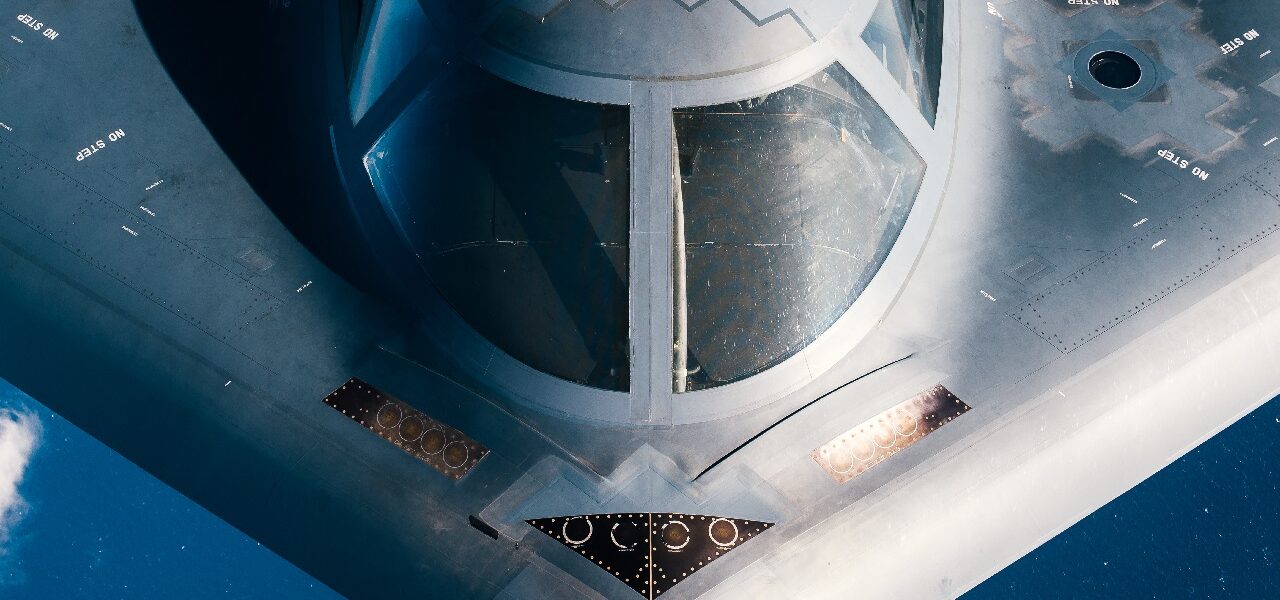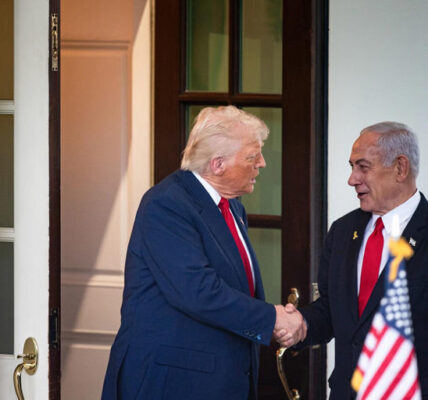
The Pentagon is considering making significant cuts to the top of the US military as the Trump administration seeks to shrink the federal government, according to a leaked briefing document.
The plans under consideration include consolidating combatant commands, possibly eliminating a directorate that oversees development, training, and education for the joint force, and halting the expansion of US Forces Japan.
Among the measures being considered are merging European Command and Africa Command into a single command based in Stuttgart, Germany, and combining US Northern and Southern Commands into a single AMERICOM command.
The document was prepared this month by US defence officials for senior leaders, as Elon Musk’s Department of Government Efficiency has pushed the Pentagon and other federal agencies to make sweeping cuts to save money.

Secretary of Defense Pete Hegseth said in a video last month that the DoD would be leaning on DOGE to help the department “find fraud, waste, and abuse in the largest discretionary budget in the federal government.”

The US military’s current annual budget is over $800 billion.
“With DOGE, we are focusing as much as we can on headquarters and fat and top-line stuff that allows us to reinvest elsewhere,” Hegseth said at the time.
Hegseth ordered the military in February to prepare plans for drastic budget cuts over the next five years, with an exception for border security, according to a memo obtained by CNN.
The Pentagon has primarily focused in recent weeks on eliminating large numbers of civilian employees, with the ultimate goal of cutting 5 – 8 per cent of the department’s civilian workforce, officials have said.
AFRICOM was created in 2007, primarily because officials at the time determined that Africa is a large enough region with enough of its own issues to merit its own command. NORTHCOM and SOUTHCOM have always been distinct, meanwhile, because they focus on different security priorities—NORTHCOM on homeland defence and cooperation with Canada and Mexico, and SOUTHCOM on Central and South America, the Caribbean, and the surrounding waters.
The briefing document acknowledges that consolidating the commands could present a risk and create an “increased scope of control and operations for the combatant commander,” and that there will be “political risk” associated with shuttering commands.
Consolidating them could save the Pentagon about $330 million over five years, the document says.
Another option to cut costs is to stop the planned expansion of US Forces Japan, the document says. That could save about $1.1 billion in personnel and command-and-control upgrades, it notes, but could also create “political risk” for the US in Japan and reduce the scope of command and control in the Pacific.
The Biden administration moved to revamp and modernise its military forces in Japan last year as part of deepening cooperation with Tokyo amid increased threats from China.
The document also proposes significant cuts to the Joint Staff, including “divesting” from the J7, a Joint Staff Directorate that oversees joint training and education for the services; firing nearly 400 civilians working in the Joint Staff’s future operations cell, cyber, and training; and moving hundreds of Joint Staff employees to a base in Suffolk, Virginia.
Another option is to eliminate the Joint Information Operations Warfare Center, which the document describes as “redundant.” JIOWC was created by US Strategic Command in 2005 to help execute the US military’s information operations.
These cuts could result in savings of around $1 billion over five years, the document says, but could also result in the “loss of key trained staff and experts either by elimination or relocation.”
Meanwhile, Washington was reeling from a massive security breach in which cabinet members complained about defending “free-loading Europe” in a secret group chat accidentally shared with a reporter.
In the breach, The Atlantic’s editor-in-chief was mistakenly added to a forum on the messaging app Signal, in which top members of the Trump administration discussed sensitive plans to bomb Yemen.
JD Vance, the vice president, raised objections to the plans, which he argued were not in American interests. “I just hate bailing Europe out again,” he said.

The group chat served as a virtual war room and contained precise information about weapons packages, targets, and the scheduled timings for the 15 March strike on Yemen, in which more than 50 people died.
Members of the group included Mr Vance, Pete Hegseth, the defence secretary, Mike Waltz, the national security adviser, and Susie Wiles, Mr Trump’s chief of staff.
The airstrikes were designed to prevent Houthi attacks on commercial ships heading through the Red Sea to and from the Suez Canal.
Mr Vance wrote: “Three per cent of US trade runs through the Suez. Forty per cent of European trade does. There is a real risk that the public doesn’t understand this or why it’s necessary. The strongest reason to do this is, as POTUS said, to send a message.”
Mr Hegseth responded, saying: “VP: I fully share your loathing of European free-loading. It’s PATHETIC. But Mike is correct, we are the only ones on the planet (on our side of the ledger) who can do this. Nobody else is even close.”
Lawmakers from both sides of the aisle were quick to criticise the cabinet members who used a third-party server to discuss highly sensitive information.
Mike Lawler, a Republican lawmaker, said: “Classified information should not be transmitted on unsecured channels—and certainly not to those without security clearances, including reporters. Period.
“Safeguards must be put in place to ensure this never happens again.”
Commentators began comparing the saga to the uproar around Hillary Clinton’s use of her private email account for government business.
Ms Clinton waded into the discussion on Monday, writing on X: “You have got to be kidding me.”
Democrats have begun demanding hearings to explain the leak.


































































































































































































































































































